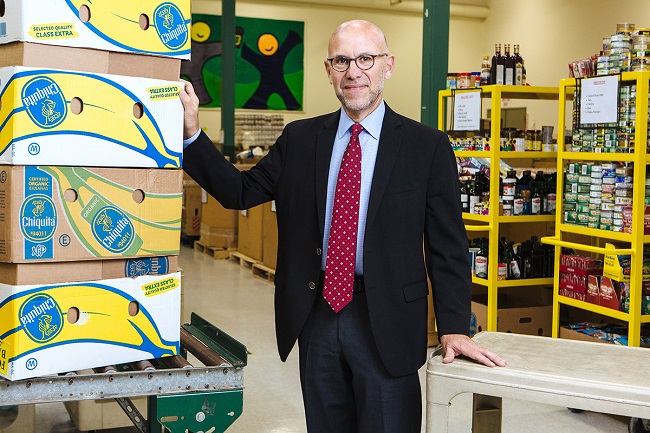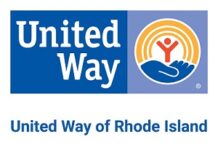
Andrew Schiff is the CEO of the Rhode Island Community Food Bank. The food bank recently released its annual Status Report on Hunger in Rhode Island, noting that food insecurity has worsened in the state this past year. Schiff spoke with Providence Business News about the report and how the food bank is continuing to keep up with the demand of providing food for low-income residents.
PBN: According to the report, food insecurity in the state has gotten worse than what it was during the pandemic. Is that the most concerning for everyone at the food bank?
SCHIFF: Yes, it’s the increase in the level of food insecurity and the increase in the number of people who are turning to food pantries to feed their families. Those are our two biggest concerns right now. Trying to explain the increase, there is the most obvious [element], which is the increase in the price of food. Also, some of the really critical COVID-19 relief programs from the federal government have ended. We’re seeing the effects of that.
PBN: Have you seen an increase in people seeking food due to those relief programs ending?
SCHIFF: We have. We’ve seen a 20% increase [in people seeking food]. It’s really been dramatic. We’re seeing each month about 10,000 more Rhode Islanders receiving food assistance through our network as compared to a year ago. I think that’s a real sign that a combination of higher food prices and less government assistance is really taking a toll on low-income families. People are working, but their wages are not keeping up with the high costs of food.
We’re worried about this winter because the people we serve right now are seeing these really high heating oil bills. We note in the report that last year, heating oil was about $3 per gallon; now it’s more than $4. That’s layering on another inflationary pressure on these same families. We know the [Federal Reserve] is taking steps to reduce inflation, but it’s just that it’s very unlikely we’re going to see significant reduction in food prices, gas prices, heating oil prices in the next three to six months.
PBN: How is the food bank trying to respond to that?
SCHIFF: We have made every effort possible to bring in as much food as we can to supply all of the partner organizations in the communities where we distribute food. We’re simply raising more money, bringing in more food to try to keep up with the demand. We’re hoping, through advocacy, that some of the programs that have proven to be effective, such as the [state] child tax credits and free school meals programs, will be reinstated. That would really help.
PBN: The food bank is asking the state’s congressional delegation for assistance, but the U.S. Capitol will be divided this next term. Are you concerned there could be inaction from the U.S. Congress?
SCHIFF: Two things about that. The best chance of making the expanded child tax credit permanent happening is probably between now and Dec. 31 during a time in which they call “a lame duck” period. I think Congress in this period will try to pass a large spending bill and there’s an opportunity to get an agreement to get the expanded child tax credit. We all saw how effective it was in reducing child poverty. I think that is possible in the next couple months.
The farm bill has traditionally been one thing Congress could work on in a bipartisan way. There’s never not been a farm bill. In the Senate Agricultural Committee – which has Republican and Democratic leaders – [they] are committed to coming up with a unified farm bill that looks at supporting farmers and the [Supplemental Nutrition Assistance Program] and how we can learn from the experience of the pandemic and improve SNAP.
PBN: Is the food bank planning to reach out to state elected leaders and ask for further assistance? And is the food bank receiving assistance from the American Rescue Plan Act program?
SCHIFF: We did receive significant financial help [early in the pandemic], all for food acquisition. The Rhode Island Foundation has been given $20 million in ARPA funds, and one of their priorities is food insecurity. A lot of our partner organizations are expected to apply for those funds. We will be back up [to the General Assembly] asking for our allotment from the state, which is now $450,000 per year.
We’re also going to work with the state to implement the SNAP incentives program. That’s $11.5 million in state money that’s going to go toward SNAP recipients. You can see the importance of the timing of it is because of the decrease in benefits that will happen when the public health emergency ends this spring. That will be really important for the state to implement that program.
James Bessette is the PBN special projects editor, and also covers the nonprofit and education sectors. You may reach him at Bessette@PBN.com. You may also follow him on Twitter at @James_Bessette.












